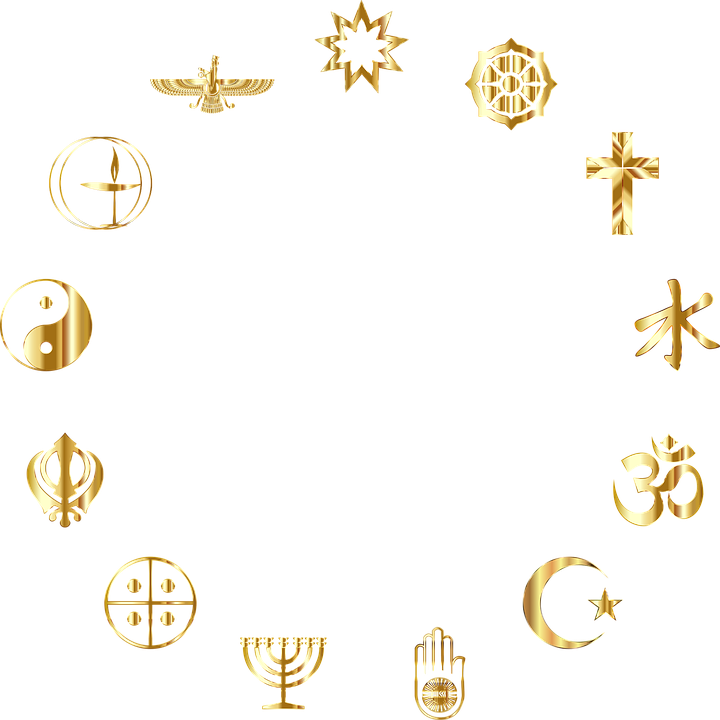Religion & Conflict
 In a world where many governments and international organizations are suffering from a legitimacy deficit, one can expect a growing impact of religious discourses on international politics. Religion will, to a greater extent, be used or misused by religioous and governmental organizations to pursue their interests.
In a world where many governments and international organizations are suffering from a legitimacy deficit, one can expect a growing impact of religious discourses on international politics. Religion will, to a greater extent, be used or misused by religioous and governmental organizations to pursue their interests.
It is therefore important to develop a more profound understanding of the basic assumption underlying the different religions and the ways in which people adhering to them see their interests. It would also be very useful to identify elements of communality between the major religions.
People have always had spiritual needs:
- A need for a basic understanding of life,
- a need for a sense of meaning and purpose and
- a need to feel connected to something greater than ourselves.
These needs seem to be universal to all cultures and time periods. In every culture people have attempted to use religion to meet their spiritual needs.
Since the awakening of religion, wars have been fought in the name of different gods and goddesses. Still today most violent conflicts contain religious elements linked up with ethno-national, inter-state, economic, territorial, cultural and other issues. Threatening the meaning of life, conflicts based on religion tend to become dogged, tenacious and brutal types of wars.
When conflicts are couched in religious terms, they become transformed in value conflicts. Unlike other issues, such as resource conflicts which can be resolved by pragmatic and distributive means, value conflicts have a tendency to become mutually conclusive or zero-sum issues. They entail strong judgments of what is right and wrong, and parties believe that there cannot be a common ground to resolve their differences.
 In a world where many governments and international organizations are suffering from a legitimacy deficit, one can expect a growing impact of religious discourses on international politics. Religion will, to a greater extent, be used or misused by religioous and governmental organizations to pursue their interests.
In a world where many governments and international organizations are suffering from a legitimacy deficit, one can expect a growing impact of religious discourses on international politics. Religion will, to a greater extent, be used or misused by religioous and governmental organizations to pursue their interests.